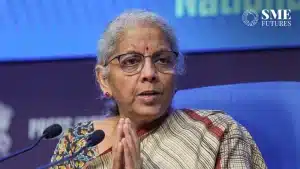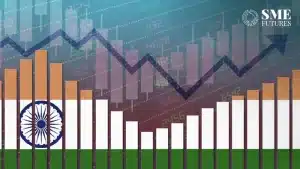Sustainability is a fast gaining importance among companies, as consumers increasingly look for products that are ‘green’. The reason simply can be credited to the growing awareness around health and environmental issues pertaining to the indestructible monster called ‘Plastic’.
While sustainable packaging is a lot about protecting the environment, it must also take into consideration the economic and social factors. That said, in order to remain viable, it also needs to be priced competitively over the traditional single-use packaging options.
Adopting the sustainable way, Air India and the Indian Railways announced replacing plastic packaging with eco-friendly paper and are now planning to use wooden cutlery as well.
E-commerce giant Flipkart is also aiming for 100 per cent recycled plastic in its supply chain by 2021. It is planning to introduce paper shreds, paper bags and carton waste shredded material in the packaging.

Amazon too is going to ditch single-use plastic packaging by June 2020 and aims to send 50 per cent of all shipments at zero net carbon by 2030.
These reactions are seen ahead of October 2, when a ban is going to get imposed on single-use plastics. The message is clear – sustainable packaging or eco-friendly packaging is the new buzz in India.
The media echoes with the sentiments of millennials too, a recent survey from Accenture confirms it. The survey depicts that more than half of 6000 respondents would like to pay more for sustainable products designed to be reused or recycled.
“The shift in consumer buying, with more consumers willing to pay extra for environmentally friendly products, reinforces the need for companies to increase their commitments to responsible business practices,” Jessica Long, Managing Director, Accenture Strategy stated in the report.
“Companies across industries have started to lead with purpose, including embracing the circular economy as a greater opportunity to drive growth and competitive agility.”
What caused the stir ?
Plastic packaging was never a problem. In fact, it appears to be efficient until the customer admires it, opens it and throws it away. It is the discard that creates the trouble. The way single-use oil-based packaging is disposed and the following waste management has led to create the environmental issue. Out of 9.46 million tonnes of plastic waste India produces, 40 per cent of which remains uncollected, only a part goes to recycle, while rest gets dumped in landfills which is the main concern.
With a strong focus on eliminating plastic packaging from various consumption cycles, it is unquestionably losing the charm it once enjoyed. Being light weight, tough and with minor carbon footprint, reusable packaging has grabbed all the attention now.
“Banning also suggests moving on to the sustainable structures,” writes Shailesh Nema, Vice President and Managing Director at Michelman India, a solutions provider for coatings, printing and packaging as he discusses the topic on a social platform.
“Banning these specific items and asking industry to move to mono material packaging structure (easy to recycle with good recovery) or paper-based packages which are reinforced with Eco-friendly barrier properties is the only solution. Indian government has made this decision in consultation with industry experts and out of sheer lack of other viable options. Industry must support this and collaborate to make a smoother transition,” he adds.

With this, big conglomerates also want to stick to packaging structures which are recyclable in nature. For instance, Godrej Consumer Product Ltd has committed a sustainability target till 2025 to adopt circular economy and to ensure efficient use of resources. This initiative includes 100 per cent use of recyclable, reusable or compostable packaging; 10 per cent use of post-consumer recycled content in plastic packaging. Also, adopting optimized packaging infra can enhance brand appeal and in the food industry it can increase shelf life.
In the long run, packaging industry will get maximum thrust out of these initiatives and the segment will grow exponentially, according to industry sources. The overall packaging industry is expected to touch US$ 72.6 billion by 2020 which is primarily being driven by pharmaceuticals, food and beverages, according to ASSOCHAM-EY Report which was US$ 31.7 billion in 2015. But with evolving environmental issues, future will see more of green packaging.

Change is in the air
The rapid change towards sustainable packaging is pushing brands to be socially and environmentally responsible. For instance, recent water crisis in Chennai led to many IT firms changing the ways they use cutleries. Food courts in IT companies shifted to paper plates and cups. Nestlé India reduced the use of plastic packaging by 1,500 tonnes through packaging optimization. Similarly, a comment by a tweep made Anand Mahindra banish single use plastic bottles in the firm.
One of the stakeholders in the paper packaging machinery industry, Kolkata based SPB Machinery talks about the change in trends. “The current scenario is shifting towards sustainable packaging, which is easy to use and is environment friendly,” says Som Dutta Bajaj, Marketing Manager at the firm.

According to the stakeholders, the segment is about to witness a sudden hike in demand after the plastic ban comes into effect. Seeing the trend, sustainable packaging market is expected to reach approximately US$ 400 million by 2024, growing at the CAGR of slightly above 7 per cent globally.In India too, the segment is picking pace.
“This seems to be a good news for small and medium business owners, as 95 per cent of packaging manufacturers are MSMEs,” says Shimoga based eco-friendly packaging small business owner Monica Levine.
Levine when started her firm says fewer number of people were aware of sustainable packaging but packaging has evolved. She is expecting big gains for her firm. She says, “Eco-friendly packaging is definitely getting popular with increasing awareness around the subject and executive policies being announced by the government. The change has just begun, and we will definitely see more profit in the long run”. Levine’s firm manufactures biodegradable Arecanut leaf cutlery, paper bags, cloth bags and banana fiber bags.

Peripheral gains
Increasing demand for environment friendly packaging is contributing to the growth of other segments as well. These include industries such as paper-based machinery, paper manufacturing, recyclers, and other startups in the segment.
Paper-based machinery- Spread of green initiative is driving paper-based machinery, in terms of manufacturing, sales and after sales.
About 45 per cent of the packaging machinery and materials produced are absorbed by the food processing sector alone, which is the largest taker of sustainable packages. Rest 25 per cent by the pharmaceuticals sector, and 10 per cent each by the personal products, tea and coffee, and industrial products industries.
“We are seeing a good rise in demand for paper disposable machines which has led to the growth of our business with 70-80 per cent of hike. I believe, this is the right time to invest in it,” says Bajaj. A report by Future Market Insights, states that the global pulp-moulding machines market will develop at CAGR of 5.1 per cent, and an increased demand for machinery as well as aftersales services is expected with more people investing in the trade.
Seeing the forecast trend, not only domestic but international players are showing a positive outlook.
At a packaging industry trade show, ‘Packplus 2019’, Chinese machinery manufacturers showcased their products, and were enthusiastic for exporting opportunities in India. “Our machine is of high capacity, fully automated and allows easy operation. It can produce 6000 paper bags in one hour,” Oliver Guo, General Sales Manager at Jiangsu Nanjiang Machinery, China claims.

“We are seeing a great demand for paper bags used for food deliveries and online ordering in India. In 2012, when Phillipines banned single-use plastic we had sold more than 100 machines there. With respect to the decision of the Indian government to ban single-use plastic, there is an immense opportunity for our machinery here as well,” he adds when asked about opportunities in India.
Eco-friendly packaging makers– In response to the growing demand, businesses are investing and creating firms to enjoy the niche market of sustainability. One such start-up owner venturing into the field talks to us. “Indian consumers and market is moving towards greener options; I feel it’s the right time to invest in the segment. That’s why we are soon going to start our manufacturing and export operations,” says Mukesh Mehta, from the Surat based firm Kristen Exports, that is set to manufacture jute, cotton and canvas bags.
In addition to new ventures, packaging manufacturers are looking towards developing biodegradable plastics with less carbon footprint. For instance, a Canada based coffee company called Level Ground coffee is creating compostable bags to pack coffee products. The bags can even be replanted. Likewise, another Indian startup Pepaa creates sustainable products from post-consumer waste, ranging from recycled paper seed pencils and pens to plantable seed paper-based products.
Paper Manufacturing– According to the research platform Statista.com, the packaging industry aced in consumption of paper in 2018. The packaging and board segment accounted for 8.7 million tons which stands out among the printing and writing paper, newsprint and the speciality segment.
Talking to smefutures.com about the growth perspectives via green packaging, Rohit Pandit, Secretary General of the Indian Paper Manufacturers Association says, “The awareness initiatives seem to be working for a particular segment in packaging, including paper-based segment. It is definitely going to be reflected for paper manufacturers too.”

With everything going greener, sustainable packaging and recycling becomes a necessity. It’s a viable option for businesses as it is prepared from 100 per cent recycled raw materials, minimizes the production process, eases the supply chain and reduces carbon footprint, creating a circular economy, with extended lifecycle and usability of products.
Green is the future
Today, paper-based packaging is indispensable in the handling and transportation of food and consumer products. It is a flexible and cost-efficient method which works for a wide array of items.

Gains in recycled packaging in Indian market can be attributed to growth of the food and beverages industry. Changing lifestyle has created the demand for packaging, as consumers now invest more on packed food and beverages.
Healthcare and personal care segments are also coming up with sustainable packaging to lure consumers. Boom in e-commerce and organised retail further contributes to the packaging sector., The e-commerce retail sector has grown to 65 million monthly unique visitors, seeing an annual increase of 55 per cent, states ASSOCHAM-Forrester report. If you search for sustainable products on any online portal you will get a range of options to choose from. Growing end users’ concerns is also adding to the sustainable market growth.
Also, there is a huge scope for packaging industry to grow, as the consumption of per capita packaging is still as low as 8.7 kg in India compared to other regions. As sustainability is becoming the new lingo, the demand for green packaging has increased substantially. Meanwhile, packaging manufacturers are eager on the use of biodegradable plastics as opposed to conventional plastics. With all these trends shaping up, the current growth in demand for sustainable packaging solutions and the drive to fight climate change is sure to go a long way.









